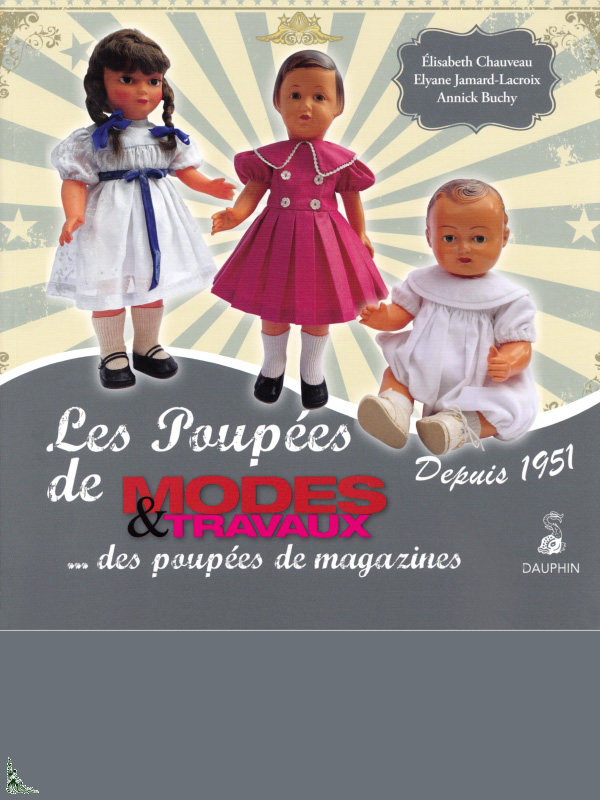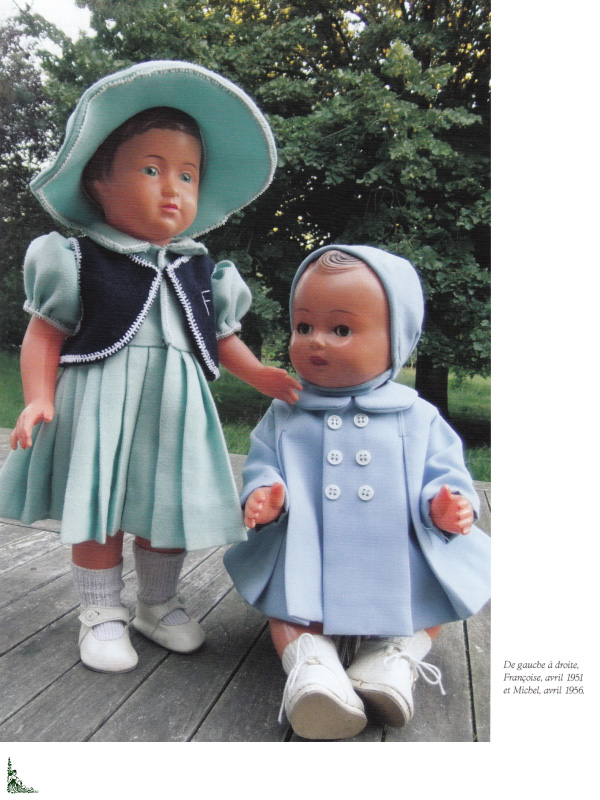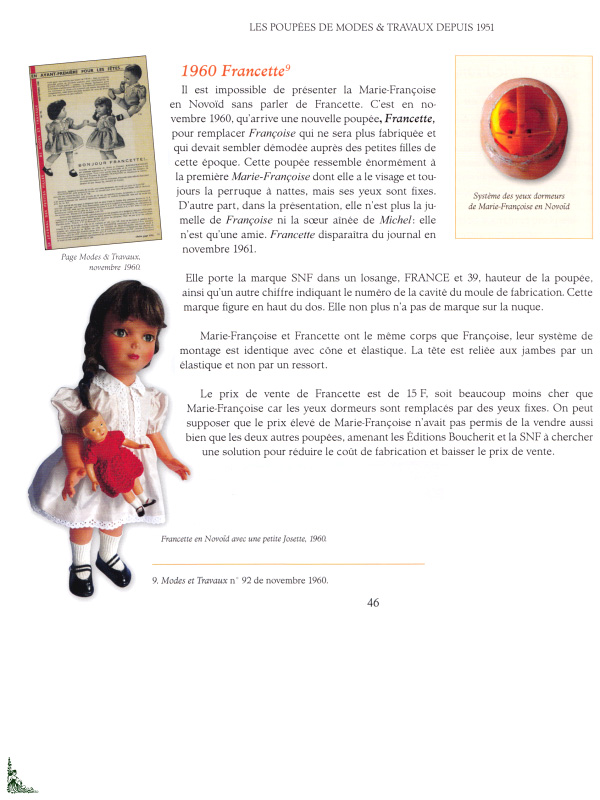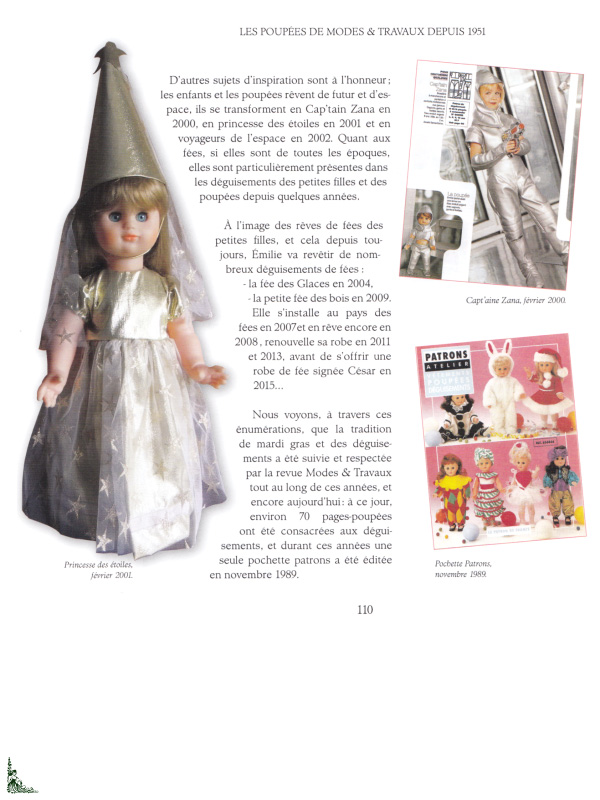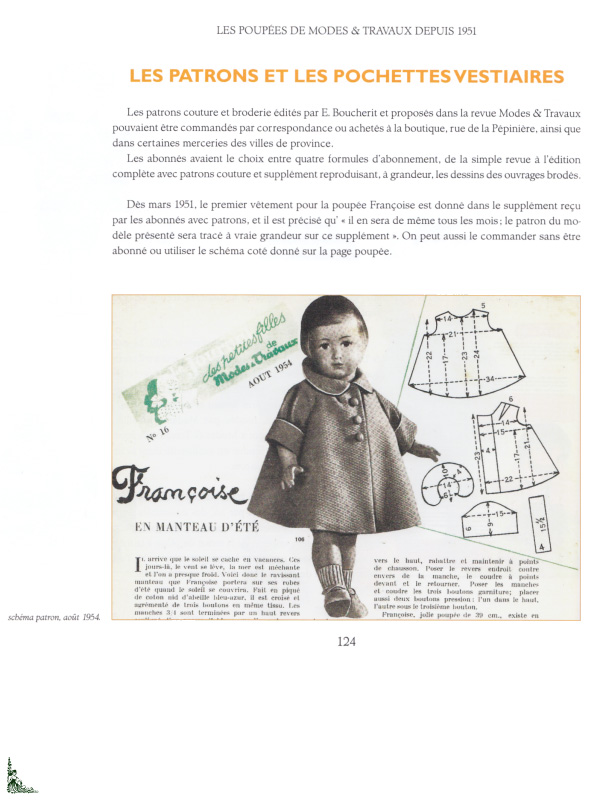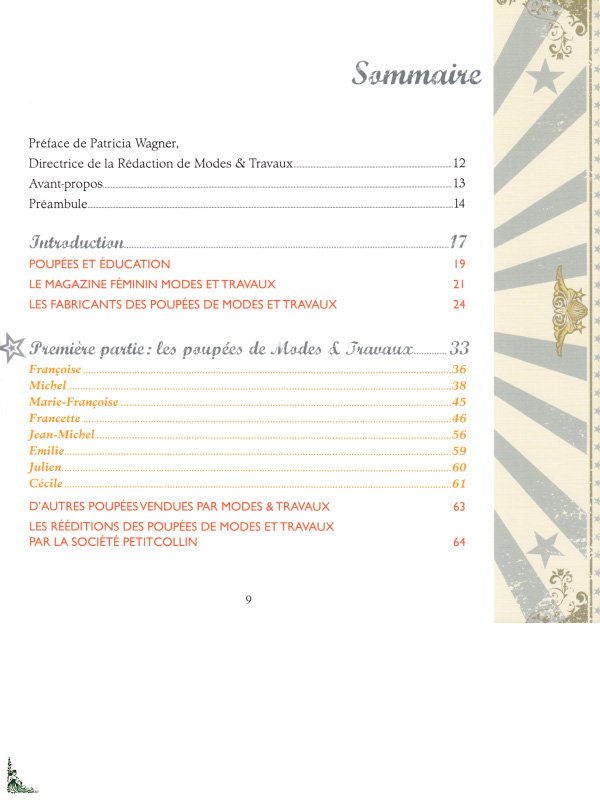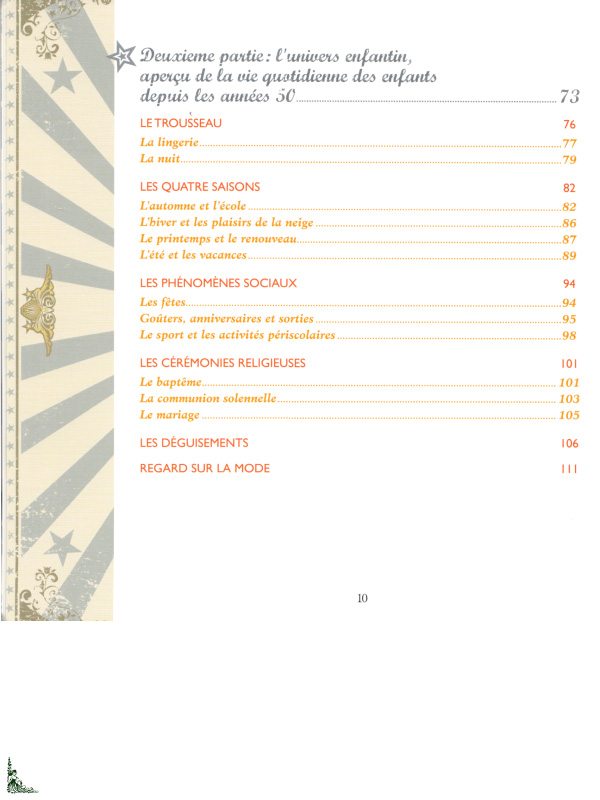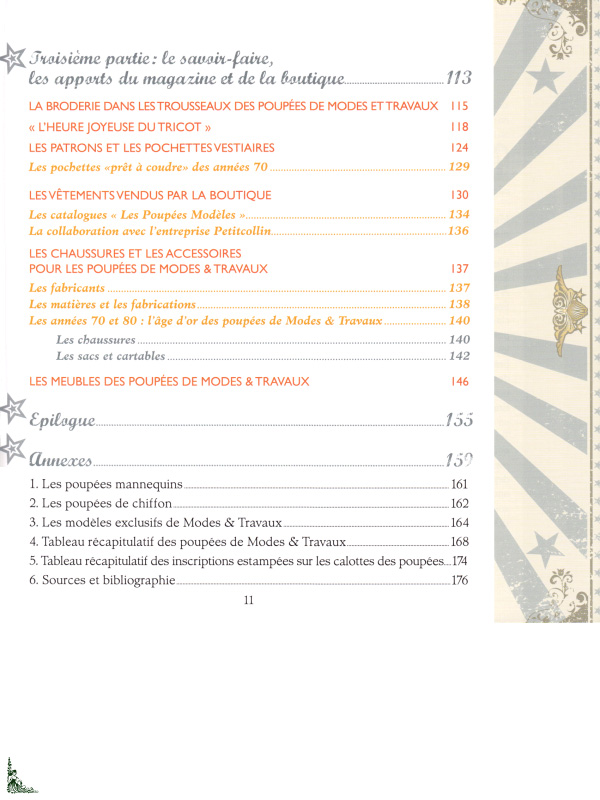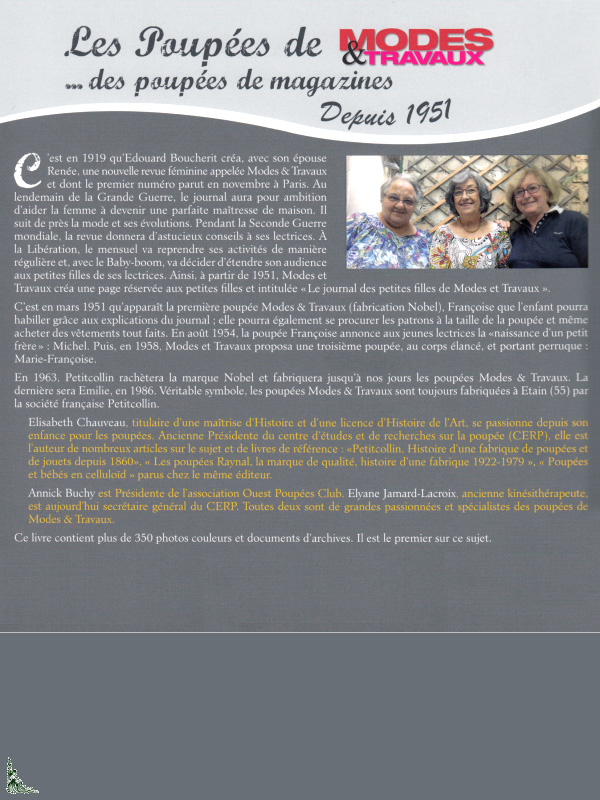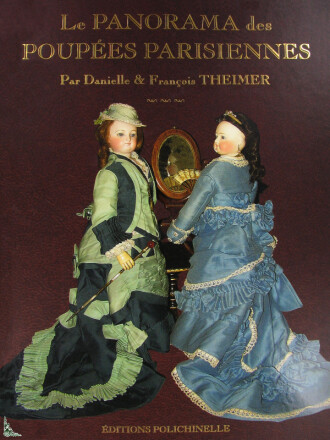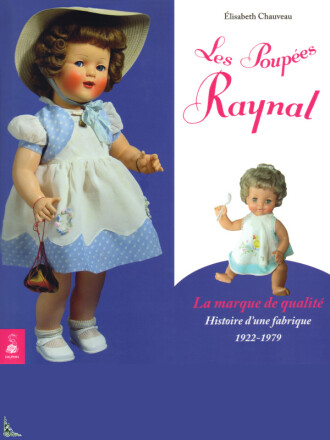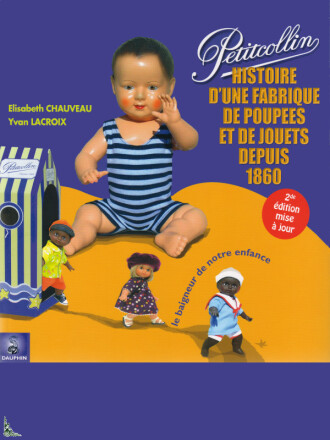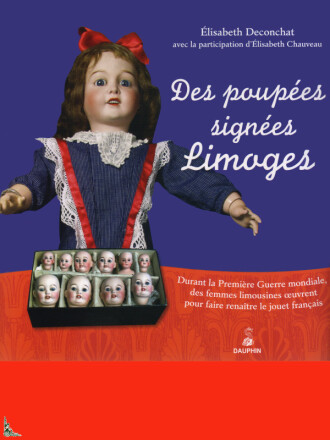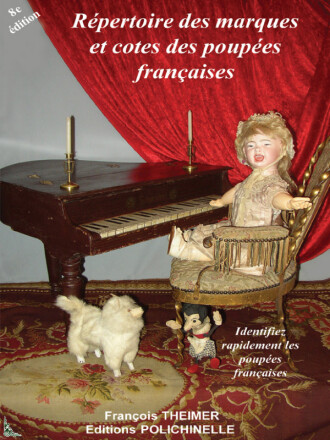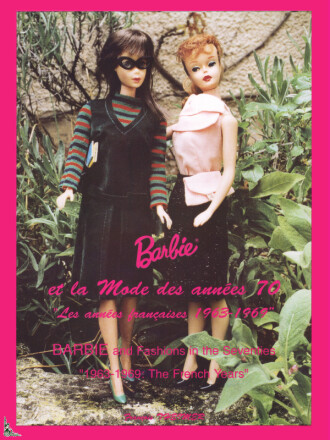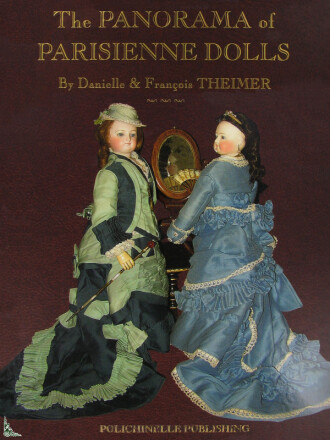Dolls of Modes & Travaux
Contenido del libro
| Autores : | Elisabeth Chauveau, Elyane Jamard-Lacroix & Annick Buchy |
| Editor : | Dauphin (2016) |
| Encuadernación : | Softcover (180 full color pages) 9 inches x 9 inches |
| Lengua : | French |
| ISBN : | 978-2-7163-1592-0 |
| EAN : | 9782716315920 |
Descripción
Dolls of Modes & Travaux, by Elisabeth Chauveau, Elyane Jamard-Lacroix and Annick Buchy, Ed. Dauphin, 9 inches x 9 inches ( 23 cm x 23 cm ), softcover book with 180 full color pages
This softcover book with 180 full color pages with over 350 illustrations and documents recounts the history of the dolls of Modes & Travaux made between 1951 and 1986.
It was in 1919 that Edouard Boucherit created, with his wife Renée, a new women's magazine called Modes & Travaux whose first issue appeared in November in Paris. In the aftermath of the Great War, the paper will aim to help the woman become a perfect housewife. It follows closely the fashion and its evolutions. During the Second World War, the magazine will provide clever advice to its readers. At the Liberation, the monthly will resume its activities on a regular basis and, with the Baby Boom, will decide to extend its audience to the girls of its readers. Thus, from 1951, Modes & Travaux created a page reserved for little girls and entitled "Le journal des petites filles de Modes et Travaux". It was in March 1951 that the first doll Modes & Travaux (manufacturing by Nobel) appeared, Françoise That the child can dress with the explanations of the newspaper; The girl will also be able to buy the patterns at the size of the doll and even buy ready-made clothes. In August 1954, the doll Françoise announced to the young readers the "birth of a little brother": Michel. Then in 1958, Modes et Travaux proposed a third doll, with slender body, and wearing a wig: Marie-Françoise.
In 1963, Petitcollin will buy the brand Nobel And will make until today the dolls Modes & Travaux. The last one will be Emilie, in 1986. True symbol, the dolls of Modes & Travaux are still manufactured in Etain (55) France, by the French company Petitcollin.
Contents:
Preface by Patricia Wagner, director of Modes & Travaux
- Dolls and education
- Women's magazine Modes & Travaux
- The manufacturers of dolls of Modes & Travaux
- Françoise
- Michel
- Marie-Françoise
- Francette
- Jean-Michel
- Emilie
- Julien
- Cécile
- Other dolls sold by Modes & Travaux
- The reissues of the dolls of Modes & Travaux by Petitcollin
- The trousseau
- The four seasons
- Social phenomena
- Religious ceremonies
- Disguises
- Fashion Look
- The embroidery in the trousseaux of the dolls of Modes & Travaux
- The joyous hour of knitting
- Patterns and wallets
- The shoes and accessories of the dolls of Modes & Travaux
- Manufacturers
- Materials and fabrications
- The 70s and 80s: the golden age of the dolls of Modes & Travaux
- Furniture for the dolls of Modes & Travaux
- Epilogue
- The dolls mannequins
- Rag dolls
- Exclusive models of Modes & Travaux
- Summary table of dolls of Modes & Travaux
- Table summarizing stamped inscriptions on doll's caps
- Source and bibliography
The French texts are written by Elisabeth Chauveau, Elyane Jamard-Lacroix and Annick Buchy.
 Description françaiseunfold_more
Description françaiseunfold_more
Les poupées de Modes & Travaux... des poupées magazines
Détails du livre
| Auteur : | Elisabeth Chauveau, Elyane Jamard-Lacroix & Annick Buchy |
| Éditeur : | Dauphin (2016) |
| Reliure : | Broché (180 pages couleurs) 23 cm x 23 cm ( 9 inches x 9 inches ) |
| Langue(s) : | Français |
| ISBN : | 978-2-7163-1592-0 |
| EAN : | 9782716315920 |
Description
Les poupées de Modes & Travaux... des poupées magazines, de Elisabeth Chauveau, Elyane Jamard-Lacroix et Annick Buchy, Ed. Dauphin, 23 cm x 23 cm, broché avec 180 pages couleurs
Ce livre de 180 pages couleurs richement illustré par 350 photos et documents d'archives retrace l'historique des poupées Modes & Travaux fabriquées entre 1951 et 1986
C'est en 1919 qu'Edouard Boucherit créa, avec son épouse Renée, une nouvelle revue féminine appelée Modes & Travaux et dont le premier numéro parut en novembre à Paris. Au lendemain de la Grande Guerre, le journal aura pour ambition d'aider la femme à devenir une parfaite maîtresse de maison. Il suit de près la mode et ses évolutions. Pendant la Seconde Guerre mondiale, la revue donnera d'astucieux conseils à ses lectrices. A la Libération, le mensuel va reprendre ses activités de manière régulière et, avec le Baby-boom, va décider d'étendre son audience aux petites filles de ses lectrices. Ainsi, à partir de 1951, Modes et Travaux créa une page réservée aux petites filles et intitulée « Le journal des petites filles de Modes et Travaux ».
C'est en mars 1951 qu'apparaît la première poupée Modes & Travaux (fabrication Nobel), Françoise que l'enfant pourra habiller grâce aux explications du journal ; elle pourra également se procurer les patrons à la taille de la poupée et même acheter des vêtements tout faits. En août 1954, la poupée Françoise annonce aux jeunes lectrices la « naissance d'un petit frère » : Michel. Puis, en 1958, Modes et Travaux proposa une troisième poupée, au corps élancé, et portant perruque : Marie-Françoise.
En 1963, Petitcollin rachètera la marque Nobel et fabriquera jusqu'à nos jours les poupées Modes & Travaux. La dernière sera Emilie, en 1986. Véritable symbole, les poupées Modes & Travaux sont toujours fabriquées à Etain (55) par la société française Petitcollin.
Principaux chapitres de l'ouvrage :
Préface de Patricia Wagner, directrice de Modes & Travaux
- Poupées et éducation
- Le magazine féminin Modes & Travaux
- Les fabricants des poupées de Modes & Travaux
- Françoise
- Michel
- Marie-Françoise
- Francette
- Jean-Michel
- Emilie
- Julien
- Cécile
- D'autres poupées vendues par Modes & Travaux
- Les rééditions des poupées de Modes & Travaux par la société Petitcollin
- Le trousseau
- Les quatre saisons
- Les phénomènes sociaux
- Les cérémonies religieuses
- Les déguisements
- Regard sur la mode
- La broderie dans les trousseaux des poupées de Modes & Travaux
- L'heure joyeuse du tricot
- Les patrons et les pochettes vestiaires
- Les chaussures et les accessoires des poupées de Modes & Travaux
- Les fabricants
- Les matières et les fabrications
- Les années 70 et 80 : l'âge d'or des poupées de Modes & Travaux
- Les meubles des poupées de Modes & Travaux
- Épilogue
- Les poupées mannequins
- Les poupées de chiffon
- Les modèles exclusifs de Modes & Travaux
- Tableau récapitulatif des poupées de Modes & Travaux
- Tableau récapitulatif des inscriptions estampées sur les calottes des poupées
- Source et bibliographie
Les textes en Français sont de Elisabeth Chauveau, Elyane Jamard-Lacroix et Annick Buchy.


